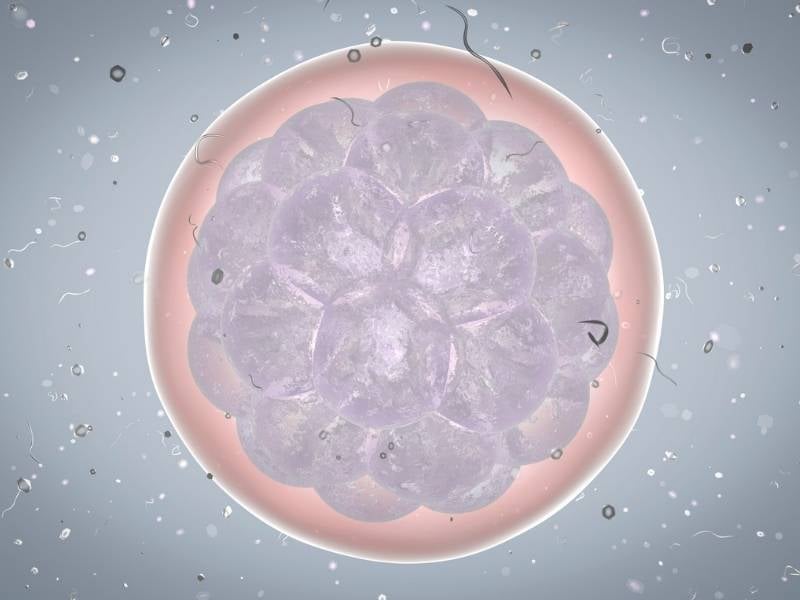Amy is delaying family building until her career has taken off. Josie hasn’t found the one. Mary has one child and wants a second, but knows she doesn’t have the time now. And Mimi is about to undergo chemotherapy to combat cancer.
These women are completely different and will likely never meet – but they do have one thing in common: the desire to freeze their eggs.
So, as these women embark on this new path, what might they want to know? We’ve answered just a few of their questions.
How did egg freezing become so popular?
Egg freezing, known as oocyte cryopreservation, was originally used for cancer patients like Mimi, who wanted to preserve their fertility before undergoing chemotherapy and radiation. But as the practice became more widespread and technology improved, women began electing to have the procedure to better safeguard their family-building options. Over the last decade, with technological improvements, egg freezing has moved into the mainstream. Egg freezing in San Fransisco and other locations has become increasingly popular over time.
Why should women freeze their eggs?
The best visual metaphor for a woman’s fertility is a clock – fertility declines with time. At puberty, a woman has about 400,000 eggs and loses eggs during each menstrual cycle. By the time she is 37 years old, her egg reserve can drop to 25,000. Because an egg is necessary to make an embryo, having a lower egg reserve diminishes the chances of sperm meeting the egg every month. For reference, a woman’s peak fertility is in her mid to late 20s, and by her early 40s, a woman’s chances of conception are fairly low.
How to Determine Egg Quality for Fertility
Just as egg quantity declines with age, so does egg equality. When a baby has a genetic defect, that defect can come from several places, one of which is an older egg. A woman’s egg quality begins to decline at 35 years of age when she has a 34 percent chance of releasing an abnormal egg. As she ages, that chance increases. At 43 years old, for example, 80 percent of her eggs will be abnormal. This can lead to several issues – failure to fertilize with sperm, failure to grow into a mature embryo, failure to implant inside the uterus, failure to grow properly – resulting in either a miscarriage or stillbirth – or birth with genetic defects.
If My Period Is Regular, Does That Mean My Egg Quality Is Good?
Unfortunately not. Menstruation is one indicator of fertility but not the most important one. Specifically, the presence of your period does not tell you about your egg reserve or your egg quality – just that you have eggs left. With oocytes, less is not more, and menstruation does not prove fertility.
How Effective Is Egg Freezing?
Step-by-Step Process & Outcomes
Yes, it works. Success rates have increased dramatically in the last decade due to improvements in technique. When a woman decides she wants to freeze her eggs, she will begin prepping her ovaries to make more eggs than usual by taking ovary-stimulating medication – she will inject herself with these hormones several times a day for up to ten days.
Now comes the time to retrieve those eggs. A woman will be sedated – although just for ten minutes – while doctors insert a transvaginal ultrasound with a needle through her vaginal wall and into her ovary to retrieve her mature eggs. This procedure takes just a few minutes and the needle bypasses the uterus entirely. There are no incisions and the patient experiences only minor discomfort. She can likely return to work the next day or the day after.
Next is the freezing—through a process called vitrification, the egg is frozen quickly but with a high concentration of protective agents so as not to damage it. Eggs stay frozen until ready to use, at which point they are thawed. Survival rates for this process are high—at RMA, 80-90 percent of frozen eggs survive the thaw.
Is Egg Freezing a Standard Practice in Fertility Treatment?
Absolutely. Citing success rates and safety, the American Society for Reproductive Medicine 2012 removed the ‘experimental’ label from egg freezing, making it a standard procedure in the industry. All these conclusions were made as a result of decades of experience and many clinical studies completed at RMA.
Best Age to Freeze Your Eggs for Optimal Success
As a rule of thumb, the sooner, the better. Freezing eggs before the age of 38 is a good idea – that gives you the best chances of success.
So, whether you find yourself in Amy’s, Josie’s, Mary’s, Mimi’s, or Samantha’s shoes or in your own unique situation, egg freezing is an option for you.
Taking Control of Your Fertility: Is Egg Freezing Right for You?
Egg freezing has empowered countless women to take control of their reproductive future, providing flexibility and peace of mind in their family-building journey. Whether you’re focused on your career, waiting for the right partner, managing a medical condition, or simply planning ahead, preserving your fertility can give you more options down the road. At RMA, we are committed to guiding you through this process with expertise, advanced technology, and compassionate care. If you’re considering egg freezing, our specialists are here to help you understand your options and create a plan tailored to your goals. Your future family starts with the choices you make today—let us help you take the next step.





